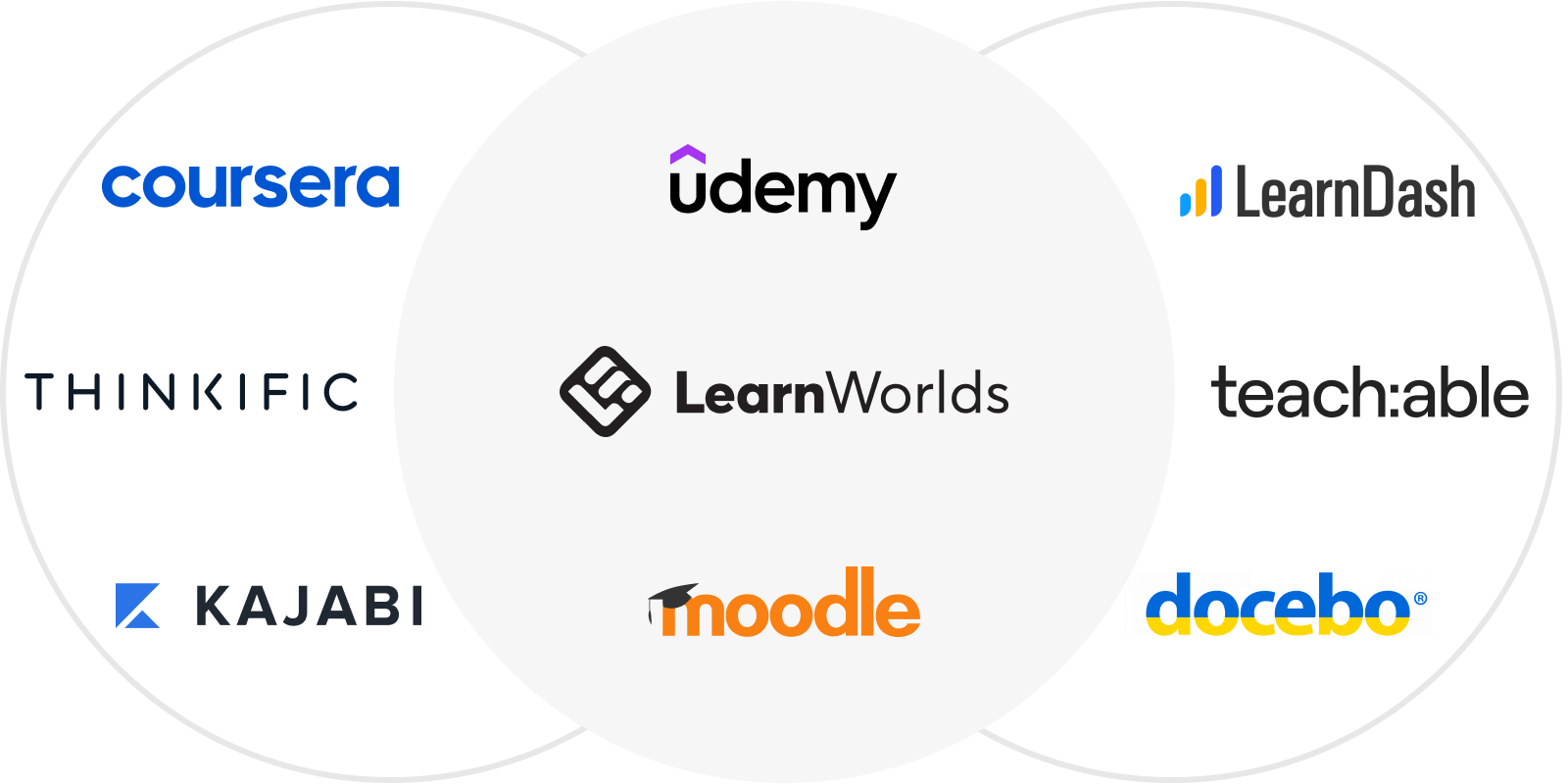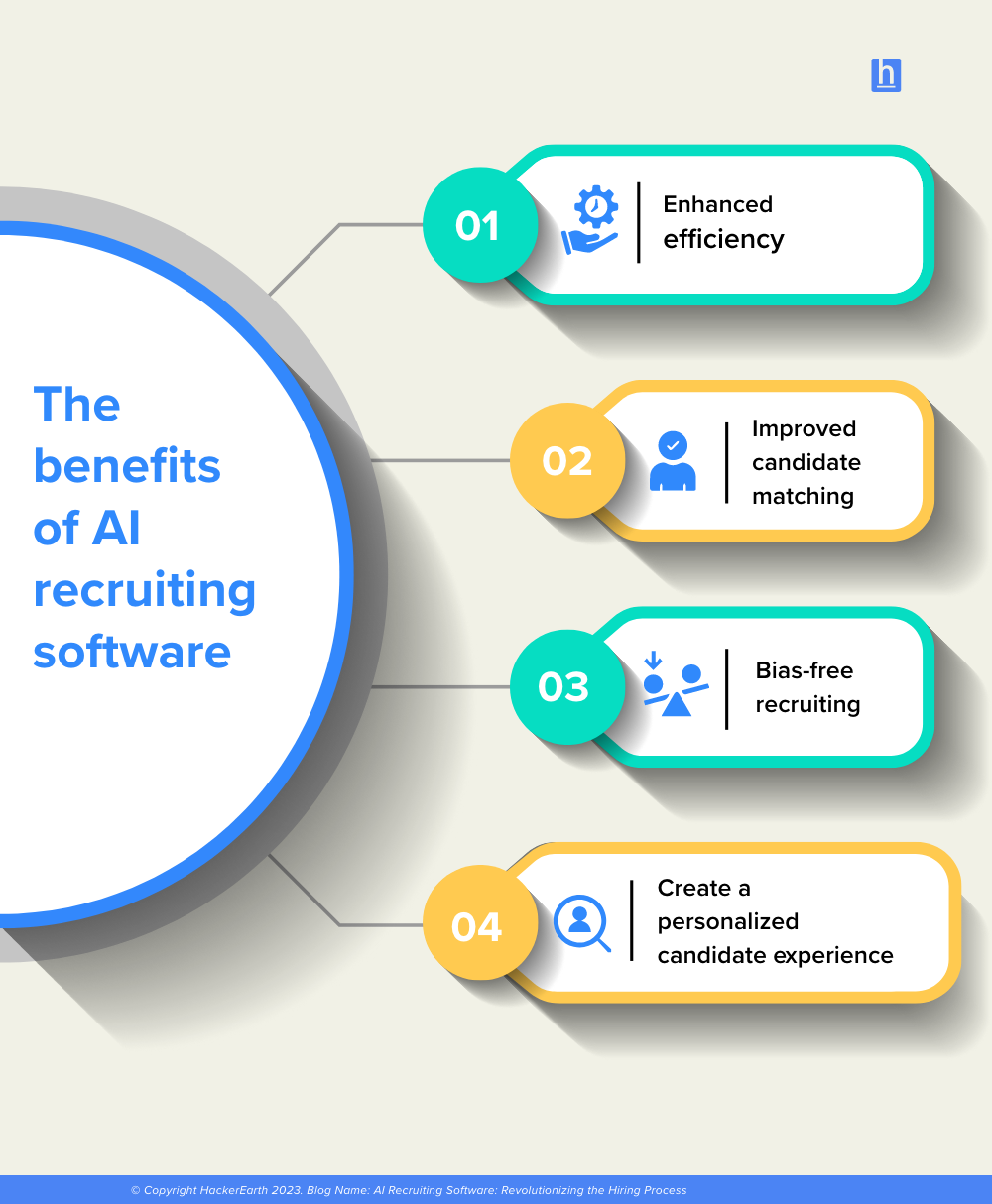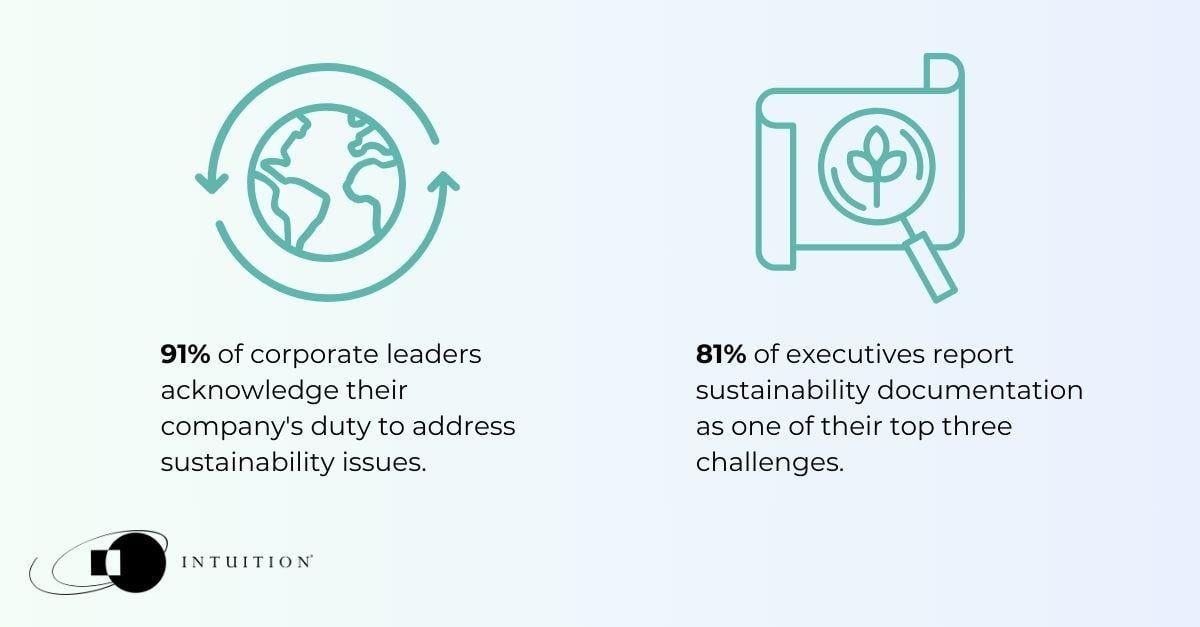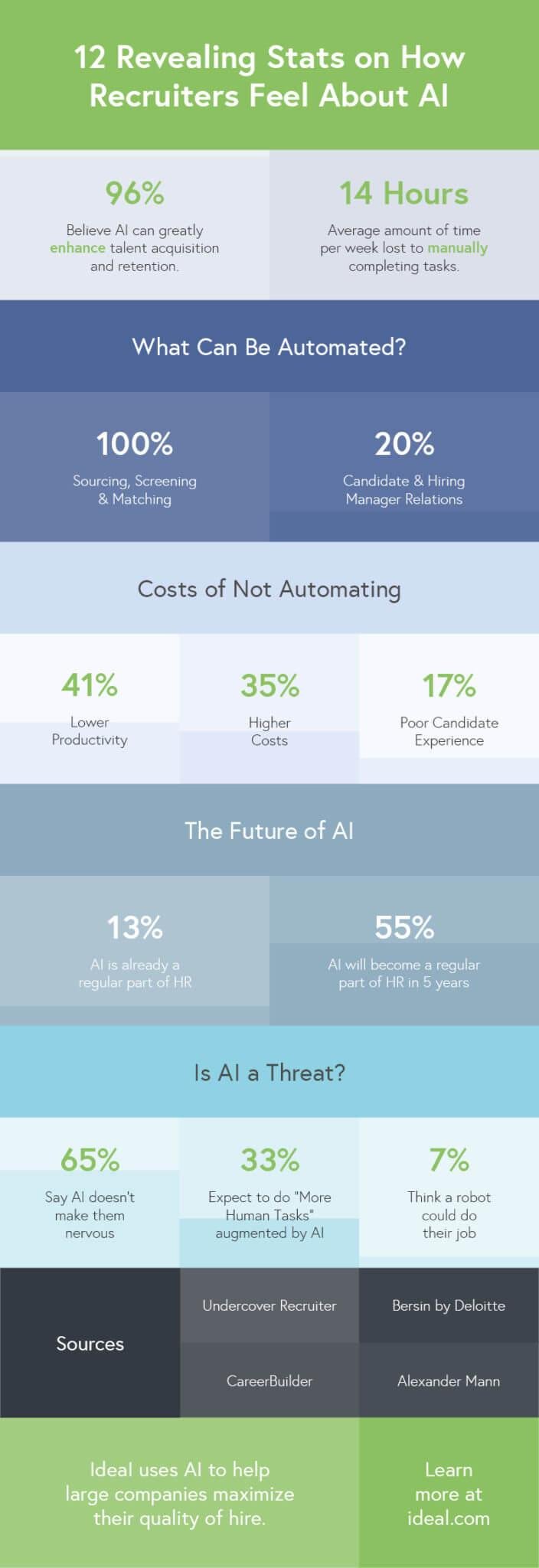Any professional job requires you to set new, ambitious goals constantly. In the digital industry, where everything appears to change every six months, this is especially true.
These goals must always be kept in mind if you want to stay motivated and keep learning, whether that means continuing your education, picking up new technical skills, learning other languages, or switching jobs when you cease to make progress. Talented professionals are highly sought after in technology-related fields. However, if they fail to adapt and grow in tandem with industry advancements, they run the risk of becoming obsolete. In the digital recruitment space, professionals that have the ability to adapt constantly are the first that are offered the opportunities.

There are a myriad of platforms available to help you achieve your goals. Both the platforms themselves, as well as what they offer enable its users to continuously acquire new digital skills. Source: LearnWorlds.
Why it is important to set new career goals for yourself?
A career goal would be typically difficult to reach, something that is complex and that will usually take cinsiderable effort on your side. Achieving goals that enrich you as a professional enhance your CV, broaden your skills, make you more interesting as a professional and, above all, help you keep your motivation high. Not everyone puts in the time and effort that it takes to improve as a professional, so this is something really valued among employers.
Common professional goals to progress in your career
Challenges differ from person to person, reflecting their unique aspirations. These challenges may encompass aspirations such as securing a role within a specific company in the near future, broadening one's professional network, successfully completing a new professional course every quarter, deepening one's expertise in a specific field, assuming greater responsibilities in one's job, enhancing organizational and productivity skills, acquiring proficiency in new languages, refining communication abilities, delivering more compelling presentations, and countless other objectives. It's important to emphasize that these goals need not be uniform across individuals; they are deeply rooted in personal ambitions and professional pursuits.

Try to set your career goals so that they'll not only benefit you. Source: MemeBase
In general we may divide them into three basic objectives:
- Better salary. A goal shared by a vast majority of individuals is to enhance their earning potential. Achieving this often involves acquiring new skills, be more productivity, mastering a new language, or undertaaking endeavors that increase your value to your organization, thereby opening the door to improved income prospects. A prime illustration of this pursuit is the pursuit of a master's degree, which equips you with additional expertise to enrich your daily responsibilities.
- Improve work-life balance. The importance of maintaining a healthy work-life balance and achieving success in both spheres has become a prominent topic of discussion, especially in the post-pandemic era. This can involve transitioning to different industries, reducing work hours or workdays, gaining job flexibility, or exploring new career paths. In essence, enhancing well-being at work involves finding solutions that contribute to employees' happiness during their workday. For instance, in the post-COVID reality, professionals in digital fields are actively seeking positions that offer flexibility in choosing their work location, be it in the office or from the comfort of their homes. Such flexibility in remote working conditions is highly prized and is likely to lead to increased productivity.
- "Enjoy my job". This third goal is often a common, but rarely achieved aspiration. While there are various reasons for feeling fulfilled or unfulfilled, fundamentally, experiencing a sense of fulfillment at work often arises from aligning with the values that the employer instills within their company culture. For instance, individuals are more likely to find accomplishment and happiness in their professional environment when they are employed by a company they hold in high regard, whether it's due to the brand's reputation, its influence within the industry or the broader world, or a combination of these factors.

Employees who can give their well-being equal priority as their responsiblities, are clearly happier, which in result positively affects their performance. Source: Vantage Circle.
How to reach your professional goals
In order to set new challenges, it is essential to to keep in mind the following guidelines:
- The goals must be attainable; difficult to achieve maybe, but possible.
- The goals must be well-defined. Your goals should be specific, clear, that anyone can understand. It will be significantly harder to achieve something generic that doesn't have set boundaries or limits. For example, it might be better not to set a goal that is "improve my professional skills" which is too broad. Instead the goal should point to a single skill (e.g., learning to speak in public, learning basic coding, set up an ecommerce website, and so on). In short, it must be measurable at the end of it.
- It is also essential that the goal be achieved at an specific date, so that you can establish the actions to be taken to reach that goal by deadline.

"Climb the K2 in winter while working remote". Remember to always set realistic goals for your career! Source: Pixabay
Challenges that will always help you achieve your professional goals
Learning a new language
In certain scenarios, possessing bilingual or multilingual abilities can outweigh having specialized technical skills.
In today's globally interconnected world, most companies conduct operations on an international scale, leading to projects being carried out in multiple languages. In the digital sector, English predominantly holds the spotlight, but proficiency in another language can undoubtedly propel your career forward. If you're unsure which language to focus on, consider researching the markets your company engages with or identifying the most valuable foreign clients.
Developing digital skills
Every employee nowadays recognizes that developing digital skills demands more than mere computer usage proficiency; it also requires understanding of the Internet, social networks, and specific applications, such as those in the cloud or related to video conferencing.
This holds true across all industries, but within the digital realm, foundational skills encompass SEO, UX Design, PPC, HTML, and CSS or even Python. Furthermore, familiarity with several platforms proves invaluable regardless of one's specific role within the sector, including HubSpot, SEMrush, Google Suite, Hootsuite, Klaviyo, Shopify, Amazon Seller Central, or Salesforce among many others, that you might want to become acquainted to.

Learning Python might be nowadays the single most important skill that will help anyone outside developers progress in their careers. Source: Amazon
Improving time management and productivity
We all have 24 hours a day, however, within these, some people manage to complete their tasks, and some fail to do so.
The reason for that lies in organization and time management skills, which are crucial for achieving the heights of productivity. In a well-known book ¨The 7 Habits of Highly Effective People¨, Stephen R. Covey established ¨putting first things first¨ as one of the most important principles of efficiency. In order to spend time to what is significant and enables you to meet the assumed challenge, you must set a limit on the less important activities.
Strentghening soft skills
Developing soft skills can be another professional goal. Company recruiters seek professionals with technical skills, but also with competencies such as creativity, communication, leadership, adaptability to change, problem-solving ability, emotional intelligence, or stress management.
Having a job that motivates you depends not only on the company you work for but also on your ability to set new career goals as you develop your professional path. Motivated individuals create positive work environments, and therefore, companies seek them out and favor their inclusion.
Conclusion
While there are moments when maintaining motivation at work can be challenging, you can overcome this by establishing attainable objectives and embracing beneficial challenges. What will inspire you to start each morning with renewed vitality and enthusiasm is having a feasible goal that propels you towards an aspirational destination.
If one of your challenges is finding a new professional challenge, register on our website at Prosperity. We collaborate with Ireland's top employers to identify the most talented candidates. You can go through our employment board to discover what offers match your qualifications – we cannot wait to meet you!
Disclaimer: This article has been writter by our team at Prosperity but ChatGPT has been used in some parts of the text to enhance readibility.




